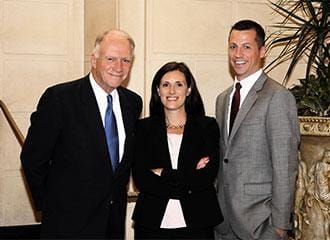Where are slip-and-fall accidents most common? Is there a way to mitigate the risk before someone gets hurt?
Slip-and-fall accidents injure a surprisingly large number of people every year. According to the National Floor Safety Institute, slips and falls are responsible for over a million hospital visits annually. They are the leading cause of workers’ comp claims and days lost from work. About 5 percent of all people who experience a fall suffer a fractured bone.
Moreover, the Consumer Product Safety Commission says that floors and flooring materials are direct contributors to over two million fall injuries each year.
Recently CNA, a provider of insurance and risk management services, performed a two-year field study of flooring and surveyed six years’ worth of slip-and-fall liability claims to discover trends. They found that retail and real estate businesses are the most likely to experience slip-and-fall accidents. Mainly, the accidents occurred on:
- Walking or working surfaces, especially on entry flooring (40 percent)
- Parking lot surfaces (33 percent)
- Sidewalks leading to entrances to businesses (27 percent)
By contrast, less than one percent of the accidents occurred on interior office floors.
Why might that be? The answer appears to be that many types of flooring are inherently too slippery. The American National Standards Institute has set a minimum dynamic coefficient of friction (DCOF) level of 0.42. According to the CNA Risk Control walkway specialists who tested hard-surface flooring in business settings, fully half of the flooring they examined failed to meet that DCOF standard.
That could mean that businesses and landlords are missing something crucial when they develop fall prevention programs. A tribometer can measure the DCOF level of flooring.
“Slip and falls can happen anywhere, any time and to anyone, and addressing the slip resistance and maintenance of interior floors to reduce exposures is critical to enhancing floor safety,” said a spokesperson for the company.
CNA found that the majority of slip-and-fall claims are non-catastrophic, as you might expect. The company notes that traumatic brain injury is a possibility. The same is true for any number of serious injuries, from sprains and broken bones to back and even spine trauma.
If you’re a business owner or landlord, the insurer recommends taking these steps to ensure your flooring is not unduly slippery:
1. Choose slip-resistant flooring, taking into account its properties and the space you need to cover.
2. Use a tribometer to test your floors’ DCOF levels under wet conditions. This gives you a better idea of the real risks involved.
3. Make sure the cleaners and cleaning methods you use are compatible with the flooring type and use them as the flooring manufacturer recommends.
4. Communicate and promote awareness of the possible risk. For example, put out “wet floor” signs after washing and during inclement weather.
Failure to appropriately clean and maintain your floors can make them more slippery than necessary. Even small pieces of debris or contaminants can be hazardous. When a known hazard arises, be sure to clean it up as quickly as possible and, in the meantime, post a prominent sign warning visitors and workers to be careful.
Taking reasonable steps to minimize the risk of falls is the legal duty of businesses, landlords and building owners. If you let that duty slide, you could be held legally responsible for negligence.
If you have been injured in a slip-and-fall accident, you should consider having an attorney evaluate your case. If the party in charge of the property was negligent, they should be held accountable. The negligent party should compensate you for your injuries and losses.


